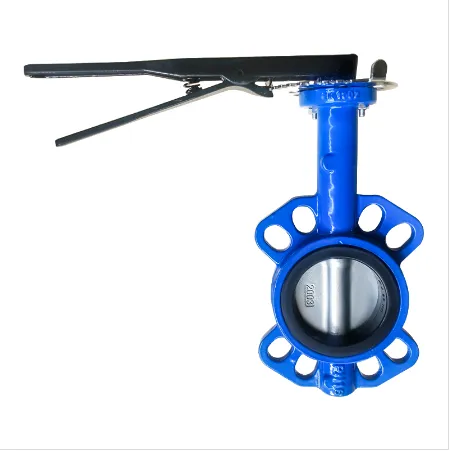
- Call Us
- +8618633052223
- njhdvlz@163.com
Νοέ . 10, 2024 02:12 Back to list
Injection Check Valve Manufacturing Industry Insights and Best Practices Analysis
An Overview of Injection Check Valve Factories
In the realm of industrial manufacturing, the importance of effective flow control cannot be overstated. One of the critical components in this area is the injection check valve, an essential device that ensures fluid flows in a single direction, preventing backflow and maintaining system integrity. This article explores the significance of injection check valves, their manufacturing processes, and the role of factories dedicated to their production.
Understanding Injection Check Valves
Injection check valves are specialized devices used primarily in fluid systems to prevent reverse flow. These valves are crucial in applications such as fuel injection systems in automotive engines, chemical processing plants, and water treatment facilities. By allowing fluid to flow in only one direction, they safeguard pumps, compressors, and other vital equipment from damage caused by backpressure or reverse flows.
The design of an injection check valve typically features a simple mechanism, often comprising a disc or ball that seals against a seat when the flow reverses. This functionality ensures that the valve operates reliably under various pressures and temperatures. Additionally, many modern check valves incorporate advanced materials and engineering techniques to enhance durability and efficiency.
The Manufacturing Process
The production of injection check valves involves multiple stages, from material selection to final assembly. The choice of materials is critical, as valves must withstand corrosive substances and high pressures. Common materials include stainless steel, brass, and high-performance plastics, each selected based on the specific application requirements.
Once the materials are chosen, the manufacturing process begins with shaping the components through methods such as casting, machining, and molding. Precision engineering is essential, as any defects in the valve can lead to failure during operation. Advanced CNC (Computer Numerical Control) machines are often employed to achieve the needed tolerances and surface finishes.
After individual components are manufactured, they undergo assembly. This stage is where quality control becomes paramount. Each valve is tested for functionality, durability, and leak resistance. Rigorous testing ensures that only high-quality valves reach the market. In many factories, automated systems are used to enhance efficiency and reduce human error in both manufacturing and quality assurance processes.
injection check valve factories

The Role of Injection Check Valve Factories
Injection check valve factories play a vital role in various industries, supplying essential components to manufacturers and distributors. These factories are often equipped with state-of-the-art machinery and technology to produce high volumes of valves efficiently. They also prioritize research and development to innovate new designs and improve existing products.
Furthermore, factories must adhere to industry standards and regulations. Certifications such as ISO 9001 ensure that quality management systems are in place, allowing factories to produce reliable and consistent products. Additionally, compliance with environmental regulations is increasingly important, driving manufacturers to implement sustainable practices in their operations.
The global demand for injection check valves is growing, particularly in emerging markets where industrialization and infrastructure development are on the rise. Factories are adapting to this demand by expanding their production capabilities, investing in new technologies, and exploring international markets for their products.
Future Trends in Valve Manufacturing
Looking ahead, the landscape of injection check valve manufacturing is set to evolve further. Trends such as automation, predictive maintenance, and the adoption of Industry 4.0 technologies are reshaping how factories operate. Employing advanced data analytics and IoT (Internet of Things) technologies can lead to improved operational efficiency and reduced downtime.
Moreover, manufacturers are increasingly focusing on sustainability. Eco-friendly materials and energy-efficient processes are becoming standard as environmental considerations take center stage in industrial manufacturing. Factories are likely to invest more in green technologies to minimize their ecological footprint while meeting the rising demands for their products.
Conclusion
In conclusion, injection check valve factories are crucial to the industrial landscape, providing essential components for fluid control systems across various sectors. As technology advances and global demands evolve, these factories will continue to innovate and adapt, ensuring that they supply high-quality products that meet the needs of modern industries. The future looks promising for the manufacturing of injection check valves, with sustainability and technological advancement leading the way.
-
Stainless Steel Sanitary Butterfly Valve | Hygienic & Durable
NewsAug.02,2025
-
Double Flanged Short Pattern Butterfly Valve | Compact, Efficient Flow
NewsAug.01,2025
-
Precise 3-Inch Butterfly Valve Dimensions | Durable Flow
NewsJul.31,2025
-
3 Butterfly Valve Dimensions | GPT-4 Turbo Precision Specs
NewsJul.31,2025
-
Stainless Steel Sanitary Butterfly Valve for Hygienic Flow Control
NewsJul.30,2025
-
High-Performance Groove Butterfly Valve for Easy Installation
NewsJul.30,2025